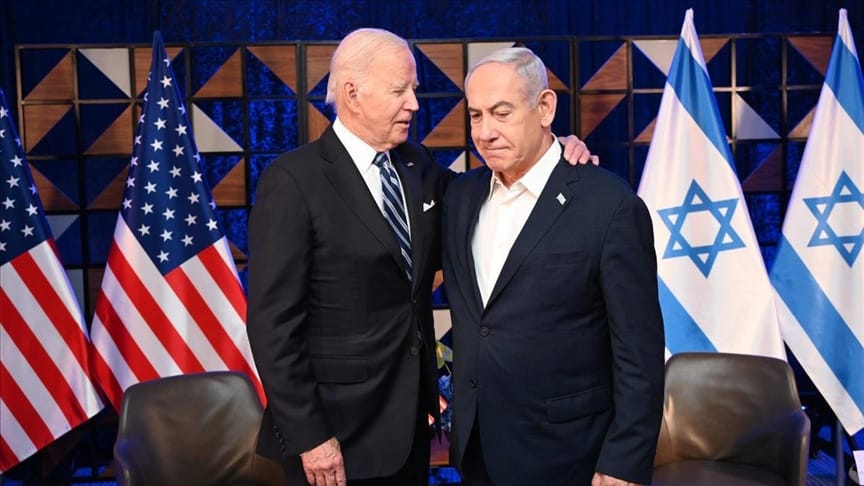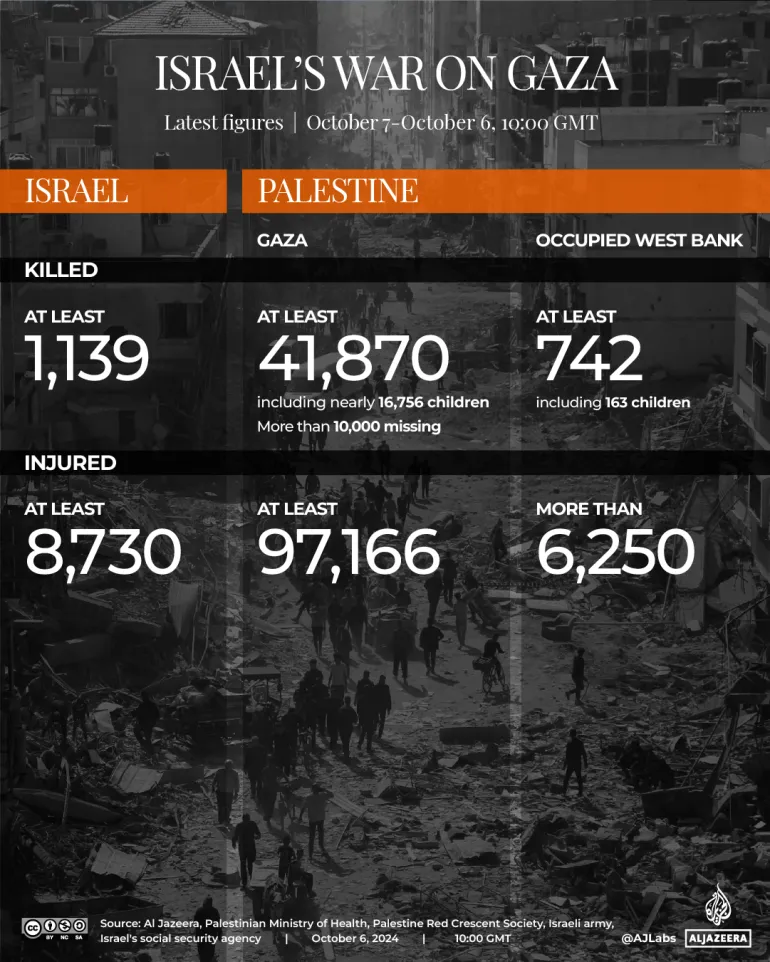The United States’ Support for Israel: Unwavering Backing Amidst Palestinian Struggles

The United States has long been a steadfast ally of Israel, providing consistent diplomatic, military, and financial support. This partnership has been pivotal in shaping the Israeli-Palestinian conflict, where Palestine has struggled to achieve sovereignty and peace amidst decades of turmoil. With the recent escalation of violence, many are questioning the reasons behind the U.S.'s unwavering support for Israel, the amount of aid provided, and the broader implications for Palestinian lives.
U.S. Financial Support for Israel
Since the establishment of Israel in 1948, the United States has been its principal supporter, providing over $146 billion in aid as of 2023. The bulk of this funding comes in the form of military assistance, making Israel one of the largest recipients of U.S. foreign aid. This aid ensures that Israel maintains a qualitative military edge over its neighbors, including advanced weapons systems, air defense systems like Iron Dome, and advanced training and intelligence-sharing capabilities.
In fiscal year 2020 alone, Israel received $3.8 billion in military aid, which is part of a 10-year memorandum of understanding (MOU) that promises a total of $38 billion from 2019 to 2028. This significant financial support has allowed Israel to conduct extensive military operations, many of which have led to severe loss of life and destruction in Palestinian territories, particularly in Gaza.
The Human Cost: Casualties in the Israeli-Palestinian Conflict
The human toll in the ongoing conflict between Israel and Palestine is staggering, with the recent escalation of violence leading to devastating casualties, particularly among Palestinians.
As of October 6, Gaza’s Ministry of Health reports the following figures:
- Killed: At least 41,870 people, including nearly 16,765 children
- Injured: More than 97,166 people
- Missing: Over 10,000 people, many of whom are feared to be buried under rubble
In the occupied West Bank, the Palestinian Ministry of Health reports:
- Killed: At least 742 people, including more than 163 children
- Injured: More than 6,250 people
In Israel, the death toll from the attacks launched on October 7 has been revised to:
- Killed: 1,139 people
- Injured: At least 8,730

These figures highlight the disproportionate impact of the conflict on Palestinians, particularly in Gaza, where entire families have been wiped out in Israeli airstrikes and infrastructure has been reduced to rubble. Many people remain trapped under collapsed buildings, while survivors face severe shortages of medical supplies, food, clean water, and electricity. The spread of illness and the collapse of healthcare services further threaten the lives of those who remain.
U.S. Veto Power at the UN Security Council
The United States' diplomatic shield for Israel is most visible at the United Nations Security Council (UNSC), where it has exercised its veto power more than 45 times to block resolutions that could hold Israel accountable for its actions or push for peace settlements favorable to Palestinians. These vetoes have included resolutions condemning illegal Israeli settlements in occupied Palestinian territories, calling for ceasefires, and demanding investigations into civilian casualties caused by Israeli military operations.
Each veto has underscored the U.S.'s commitment to protecting Israel from international scrutiny, leaving many Palestinians feeling abandoned by the global community and frustrated with the lack of accountability for the actions of the Israeli military.
How Does Israel Fund Its Wars?
Aside from U.S. military aid, Israel funds its military operations through domestic taxes, international arms sales, and additional bilateral aid from other countries, including Germany and the UK. Israel also benefits from a robust economy, driven by sectors like technology and defense, which helps fund its military programs.
However, the U.S.'s substantial military assistance remains a key factor in Israel’s ability to wage prolonged military campaigns against Palestinian territories. Critics argue that this flow of funding directly contributes to the cycle of violence in the region, empowering Israel to continue its occupation of Palestinian land and suppressing efforts for peace.
Why Does the U.S. Support Israel?
There are several reasons behind the United States’ unwavering support for Israel:
- Geopolitical Interests: Israel serves as a crucial ally for the U.S. in the Middle East, a region long plagued by instability. With tensions between the U.S. and countries like Iran and Syria, Israel provides a strategic foothold for U.S. interests in the region, including intelligence-sharing, military cooperation, and counterterrorism efforts.
- Historical and Religious Ties: Israel holds significant religious and cultural importance for many in the United States, especially within the Christian evangelical community. Evangelicals, a major political force in the U.S., often view the preservation of Israel as fulfilling biblical prophecy, which influences U.S. foreign policy decisions.
- Political Lobbying: Pro-Israel lobbying groups, most notably the American Israel Public Affairs Committee (AIPAC), exert substantial influence over U.S. lawmakers. AIPAC and other groups ensure that Congress continues to allocate billions in military aid to Israel and oppose legislation that could sanction or criticize Israel's treatment of Palestinians.
- Shared Democratic Values: The U.S. often frames its support for Israel in terms of shared democratic values, portraying Israel as a bastion of democracy in a region dominated by authoritarian regimes. However, critics argue that Israel’s treatment of Palestinians and its policies in occupied territories are incompatible with democratic ideals.
A Call for Palestinian Justice
Despite overwhelming U.S. support for Israel, there is a growing movement within the U.S. and around the world advocating for Palestinian rights. The Boycott, Divestment, Sanctions (BDS) movement has gained international traction, calling for non-violent resistance against Israel’s occupation of Palestinian territories. Additionally, human rights organizations, including Human Rights Watch and Amnesty International, have accused Israel of apartheid-like practices in its treatment of Palestinians.
Palestinians have been left in a precarious situation, with many feeling that their plight is overlooked by world powers. As the U.S. continues to provide billions in military aid to Israel, the Palestinian population suffers from a lack of basic human rights, restricted movement, and constant fear of violence. A growing chorus of voices is calling for the U.S. to rethink its policy and recognize the need for a fair, just, and lasting peace that respects the rights of both Palestinians and Israelis.
In the words of a Palestinian activist, "We are not asking for war; we are asking for our humanity to be recognized, for our children to live in peace, and for justice that has long been denied to us."
As the conflict drags on, the world must ask itself: how long can this cycle of violence and imbalance of power continue before the cries for peace and justice are finally heard?
